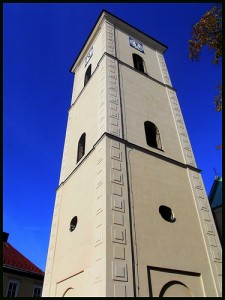 The Sunday after tornadoes ravaged Texas, killing six, The Dallas Morning News’ front page, five-column, lead headline read “Faith seeing them through.” Newspapers don’t traditionally banner such affirmations of religion; seeing this newspaper do so caused a tumble of contradictory feelings in me. I winced at the parochial look of it. And then I sighed. Faith probably did get the little town of Granbury, Texas, through the disaster. What was my problem?
The Sunday after tornadoes ravaged Texas, killing six, The Dallas Morning News’ front page, five-column, lead headline read “Faith seeing them through.” Newspapers don’t traditionally banner such affirmations of religion; seeing this newspaper do so caused a tumble of contradictory feelings in me. I winced at the parochial look of it. And then I sighed. Faith probably did get the little town of Granbury, Texas, through the disaster. What was my problem?
I had been part of The Dallas Morning News team in the 1990s that pioneered new openness to religion among journalists. One of our goals was to eliminate the various ways that journalists covertly sneered at certain manifestations of faith.
Readers sometimes mistook our even-handedness for advocacy. I was often accused of holding and furthering beliefs that were not mine at all. So now I was a reader instead of a reporter. I read on, and I didn’t have to read far before I found the prayer story I’d been expecting.
A family hidden in a closet, called out to God, “Jesus, save us. Jesus, save us.” Minutes later they opened the door “to a world of splintered wood, jagged metal and naked, broken tress. Everything was gone except for the closet they were standing in,” the story read.
Their pastor, who was relating the story, then finished it: “Somebody standing in a closet calls out to God to save them, and everything is destroyed except their closet,” the pastor said. “That’s no coincidence.”
I smiled to think of how happy the reporter must have been to get such a quote. I imagined that he had kept his head down writing the quote, as I would have. I wondered if he’d looked up then and nodded encouragement. I wondered if he’d been thinking at the same time about the six people dead and the scores more maimed and injured. I wondered whether or not he wanted to ask, “Did they die because they didn’t call out to Jesus?”
I hoped the reporter had thought of that. I was sure he hadn’t asked. And I am sure that he shouldn’t have asked.
He’d played it straight. Just as he should have.
And I had come full circle. I was now a reader, bridling just a bit, wondering if the reporter was really reporting or feeding me his own beliefs.
Which is fine. Just as it should be.
Reporting is relaying. Faithfully. Honestly. Making a record of a time and a place and a people. Playing it straight.




